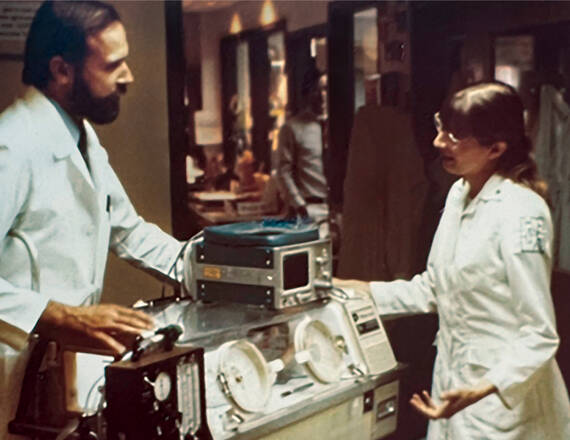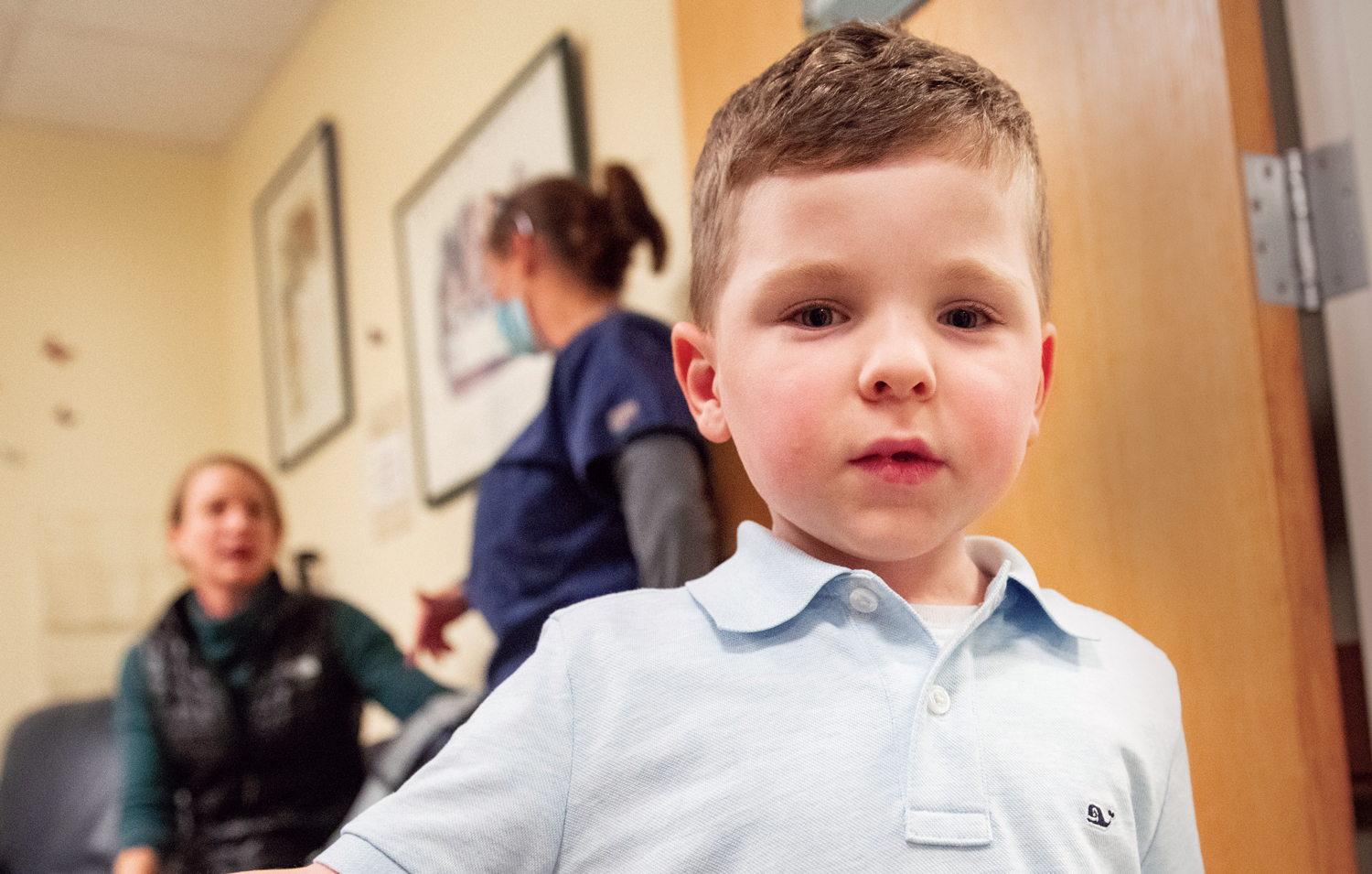Intensive Care Nursery Celebrates 50 Years
It began as just two beds added to an adult intensive care unit. Now, 50 years later, the 30-bed Intensive Care Nursery within the Children’s Hospital at Dartmouth Hitchcock Medical Center has become a guiding light for families during their hardest moments.

Since its humble beginnings in 1973, the Intensive Care Nursery (ICN) at the Children’s Hospital at Dartmouth Hitchcock Medical Center has grown to become an essential component of healthcare in Northern New England. As a Level 3 neonatal intensive care unit, the Intensive Care Nursery is the only critical care center for newborns of its caliber in New Hampshire and the surrounding region.
“If we weren’t here, really in the middle of the two states of New Hampshire and Vermont, women and premature infants, and infants in distress who needed intensive care, would have to travel great distances,” said Keith Loud, MD, MSc, physician-in-chief of Dartmouth Health Children’s. “We are vitally located in order to provide safe and high-quality care.”
Over the past 50 years, the Intensive Care Nursery has been a game-changer for many families, with the nursery caring for about 450 babies from across the region each year.
Infants born in hospitals hundreds of miles away who need specialized care are often transported by the Dartmouth Hitchcock Advanced Response Team by land or by air to the nursery.
“Not long after [our daughter’s] birth, the heroes from Dartmouth’s Intensive Care Nursery arrived to bring her to the ICN. We vividly remember their green suits and the feeling of relief upon seeing them. They were confident, competent, and ready to do what they needed to do to save our baby girl,” said April Brown, whose daughter Willow weighed less than three pounds when she was born prematurely at a hospital without a neonatal intensive care unit.
“There are no words to express what it feels like to have had access to this incredible facility that saved our baby’s life,” Brown said.
A Model NICU
Five decades ago, the Intensive Care Nursery was at the forefront of a new field of medicine: neonatology. It was only the second neonatal intensive care unit in Northern New England, Loud said. Its founder, George Little, MD, was the architect of this new kind of system of care devoted to newborns at Dartmouth Health.
“I was entering into a new world here,” Little said of the field of neonatology, which was, at most, a decade old when he arrived in New Hampshire to launch the Intensive Care Nursery.
Little knew he wanted to create something that not only involved state-of-the-art medical practices, but also patient-centered care.
“I knew that a system of care for newborn babies was needed,” said Little, who was a doctor in the Peace Corps before coming to Dartmouth Health. “My goal was to establish an advanced critical care unit for babies. Part of the experience I got from working with the Peace Corps as a new physician was developing an appreciation for systems of care. We developed a home for that system of care at Dartmouth.”
Parents on the Team
That care extends well into the memory of every patient, something that Dorothy Mullaney, former chief APP officer of Dartmouth Health who retired in July after nearly 41 years, knows all too well.
“There are babies that stick with you; there are families that stick with you,” she said. “Recently, I was out to dinner with two friends who were also nurses, and a gentleman came over and told me that I took care of his son in the ICN 20 years ago. It’s a pretty incredible place.”
When Little started, intensive care for newborns was tucked in with adult intensive care, but the unit was quickly given its own space attached to the obstetrics unit in the Mary Hitchcock Memorial Hospital. This was before the Children’s Hospital was built, said Tammy Lambert, MSN, RNC-NIC, nurse manager of the Intensive Care Nursery.
When she joined about a decade into the ICN’s existence, it was still in a small, closet-like space, but a wing was eventually added to better meet patient needs.
The modern Children’s Hospital at Dartmouth Hitchcock Medical Center was built in 1992, and a space was built especially for the Intensive Care Nursery. At the time, it was state of the art, Lambert said, with all open bays. Visitors from around the country came to see the facility as they designed their own.

Over the past three decades, healthcare practitioners have gained a better understanding of newborn development. “Neonatology is a really young area of medicine,” Lambert said. At the Intensive Care Nursery, that learning has led to a big emphasis on families being an extension of the care team. Regular physical contact with parents, such as through skin-to-skin contact, Lambert said, can be vital for a baby’s brain development and general health, so the nursing staff ensures that families are empowered to participate in their baby’s care.
In recent years, neonatal intensive care units have been moving toward a model that includes more private spaces for families and that can host families directly in the unit overnight. Currently at the Dartmouth nursery, there is an off-site location to host families, but limited space for them to be present with their babies in the unit itself. Loud said that plans for an “ICN 3.0” will address these needs to further incorporate families into the care team.
Little emphasized that the success stories that come from the ICN are part of a bigger picture that encompasses the many professionals who dedicate their lives to saving others across the region. Partnerships with hospitals and clinics throughout the region and the Dartmouth Health network allow patients to receive follow-up care closer to home and have access to the Intensive Care Nursery through that network.
“The neonatal intensive care unit is a team effort,” he said. “We have been very proud about the fact that our unit truly is all of us providing this care. I feel very strongly that we realize that this is part of a system of care that will continue to improve and serve the community.”
To learn how you can support the Intensive Care Nursery or the Children’s Hospital at Dartmouth Hitchcock Medical Center, contact Polly Antol at Polly.Antol@hitchcock.org or at 603-646-5316.